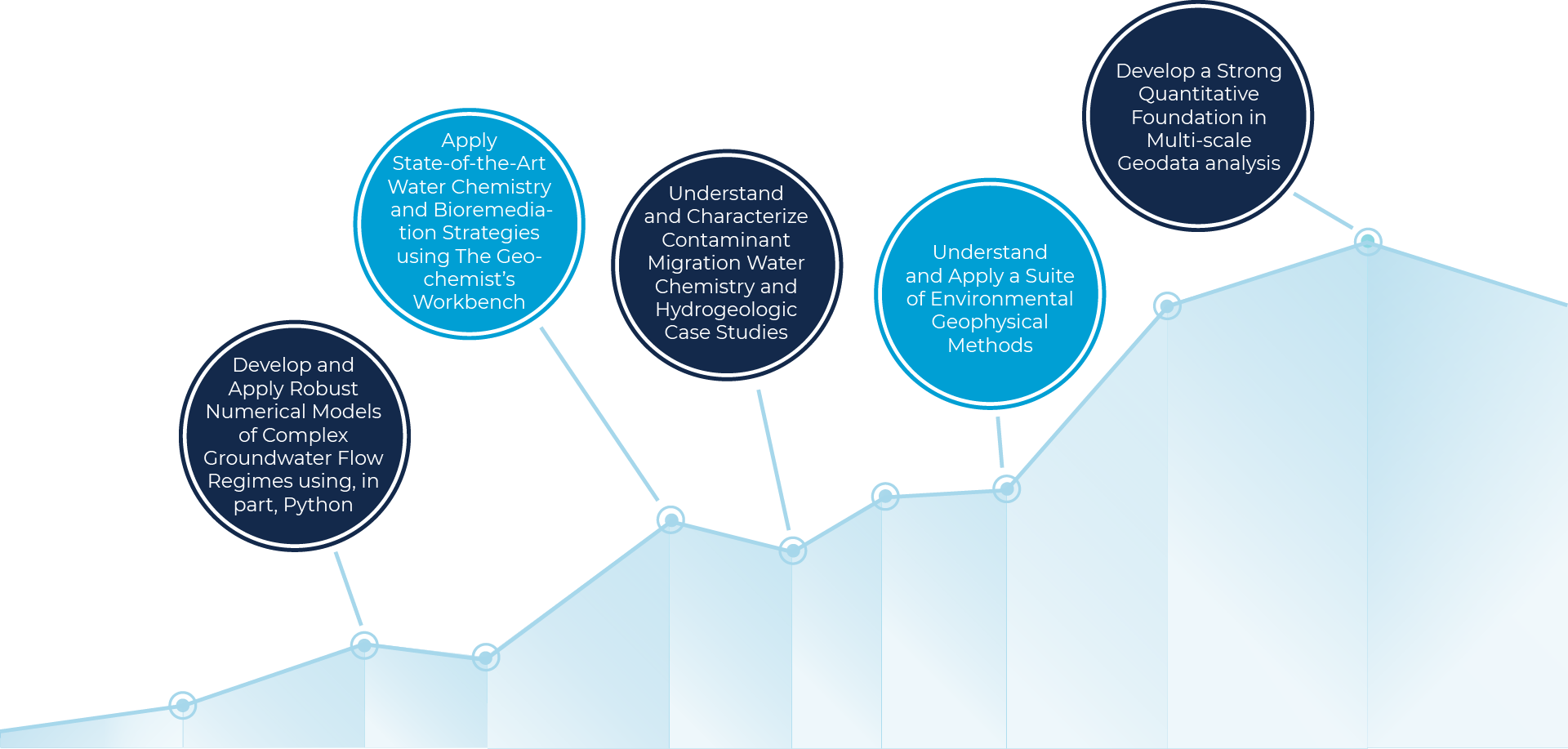
12 credit hours
32 credit hours
The Environmental Geology graduate-level certificate is a 12-credit program allowing a student to gain more skills in a growing field as well as obtain micro-credential that can be added to a resume and LinkedIn! It also provides an ideal bridge into the 32-credit hour online Master’s degree should students desire to continue on for an advanced graduate degree. Learn more>>
The M.S. in Environmental Geology is designed to meet the high demand for advanced geology expertise used in applied industry sectors, including modeling of groundwater flow, characterization of contaminant migration, groundwater and contaminant geochemistry, and environmental geophysics. Learn more>>

The tuition rate for the 2023-2024 academic year is $740 (USD) per credit hour for both the certificate and master’s program courses. Rates in future academic years are subject to review by the Illinois Board of Trustees. The rate is the same for in-state, out-of-state and international students.
Employment options for Environmental Geology Certificate and M.S. graduates are numerous. Depending on your area of interest, graduates can choose rewarding careers in government, private industry, non-profit organizations, and educational services. Employment opportunities may include work in environmental regulations, environmental consulting, hydrogeologic investigation, pollution abatement and hazardous waste remediation, and environmental geochemistry.

Develop and Apply Robust Numerical Models of Complex Groundwater Flow Regimes using, in part, Python
Apply State-of-the-Art Water Chemistry and Bioremediation Strategies using The Geochemist’s Workbench
Understand and Characterize Contaminant Migration Water Chemistry and Hydrogeologic Case Studies
Understand and Apply a Suite of Environmental Geophysical Methods
Develop a Strong Quantitative Foundation in Multi-scale Geodata analysis